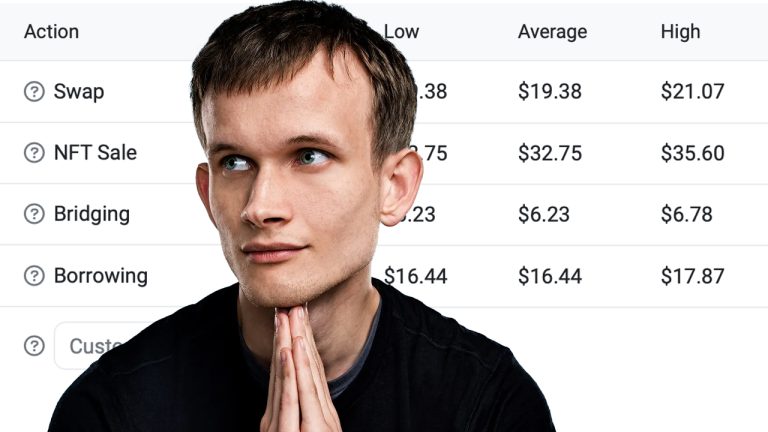
In a candid evaluation of the current state of Web3, Ethereum co-founder Vitalik Buterin laments the fading vision of a decentralized internet. Buterin emphasizes the stifling effect of rising crypto transaction fees on innovation and broad-based usage of cryptocurrency. He points out the shift towards centralized solutions and the dominance of high-stake players, expressing concern over the changing landscape and culture within the crypto community.
From Decentralization to ‘Degen’ Domination: Buterin Reflects on Web3’s Path
Vitalik Buterin, the influential co-founder of Ethereum, has recently voiced concerns over the evolving dynamics of the Web3 environment. According to Buterin, the dream of a decentralized internet is being overshadowed by the harsh reality of escalating transaction fees on blockchain networks. These fees are creating a barrier to entry, inhibiting innovations and the widespread adoption of crypto as a means of transaction and saving.
Buterin said:
The number one culprit that I would blame as the root cause of this shift is the rise in transaction fees.
Highlighting a significant shift in the crypto narrative, Buterin notes that “few talk about consumer crypto payments” anymore. The original vision of crypto assets as a democratizing financial force seems to be dwindling, with practical, everyday use cases becoming more theory than practice. Instead, a reliance on centralized platforms is growing, as they offer more stable and affordable avenues for users to engage with digital currencies.
Buterin specifically points out the ramifications of the increasing transaction costs, stating that they have effectively marginalized all but the most speculative and risk-tolerant users — the “degen gamblers.” These individuals are described as “the only audience that remains willing to pay” the high fees for transactions. This shift is not only changing who uses blockchain but how it is perceived, pushing away would-be adopters looking for practical and economical use cases.
The predominance of these high-stake players within the blockchain space is not without consequence. Buterin argues that this demographic shift “adjusts the public perception and the crypto space’s internal culture” in a way that might not be beneficial for the long-term health and perception of cryptocurrencies. The high-risk, high-reward mentality overshadows the inclusive, revolutionary ideals that many believe crypto stands for.
“Degen gamblers can be okay in moderate doses, and I have talked to plenty of people at events who were motivated to join crypto for the money but stayed for the ideals,” Buterin wrote.
Addressing the future, Buterin calls for reflection and action within the community. He underscores the need for scalable solutions that lower barriers and restore the original inclusive vision of Web3. The challenge is not just technical but cultural, requiring a shift back to the roots of what made the concept of decentralized digital currency so appealing to a broad audience initially.
What do you think about Buterin’s latest blog post? Share your thoughts and opinions about this subject in the comments section below.
source https://news.bitcoin.com/vitalik-buterin-reflects-on-web3s-diminishing-vision-amidst-rising-transaction-fees/
Komentar
Posting Komentar